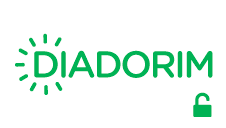Challenges in school-based teacher professional development
building learning communities and capturing classroom dialogue
DOI:
https://doi.org/10.47677/gluks.v22i2.365Keywords:
não temAbstract
Teacher education has a long tradition of prescriptive curriculum-based and skills-centered models that convey simplistic conceptualisations of teacher learning. Only recently, this trend has shifted towards promoting teachers' agency in their own professional development. In this work, we reflected on the challenges faced ?while building one partnership based on teachers' inquiry during and over the pandemic. The intervention was targeted to promote classroom dialogue and should have employed the use of video recordings to capture and analyze teachers' practice. The main point addressed here was the teachers' tacit rejection of the video recording and the building of a new tool. Moreover, the cordial culture among teachers and researchers did not offer space for critical reflection on practice. Overall, despite the school leadership being willing and committed to the ?programme, the implementation revealed how the schooling system does not value or ?create conditions for TPD.
Downloads
References
Anderson, L., & Stillman, J. (2013). Making Learning the Object: Using Cultural Historical Activity Theory to Analyze and Organize Student Teaching in Urban High-Needs Schools. Teachers College Record, 36.
Borko, H., Jacobs, J., Eiteljorg, E., & Pittman, M. E. (2008). Video as a tool for fostering productive discussions in mathematics professional development. Teaching and Teacher Education, 24(2), 417–436. https://doi.org/10.1016/j.tate.2006.11.012
Brophy, J. (2004). Using video in teacher education (Vol. 10). Elsevier.
Brown, B. D., Horn, R. S., & King, G. (2018). The Effective Implementation of Professional Learning Communities. Alabama Journal of Educational Leadership, 5, 53–59.
Clark, C., Moss, P. A., Goering, S., Herter, R. J., Lamar, B., Leonard, D., Robbins, S., Russell, M., Templin, M., & Wascha, K. (1996). Collaboration as dialogue: Teachers and researchers engaged in conversation and professional development. American Educational Research Journal, 33(1), 193–231. https://doi.org/10.3102/00028312033001193
Clarke, D., & Hollingsworth, H. (2002). Elaborating a model of teacher professional growth. Teaching and Teacher Education, 18(8), 947–967. https://doi.org/10.1016/S0742-051X(02)00053-7
Coles, A. (2013). Using video for professional development: The role of the discussion facilitator. Journal of Mathematics Teacher Education, 16(3), 165–184. https://doi.org/10.1007/s10857-012-9225-0
Desimone, L. M. (2009). Improving Impact Studies of Teachers’ Professional Development: Toward Better Conceptualizations and Measures. Educational Researcher, 38(3), 181–199. https://doi.org/10.3102/0013189X08331140
Dillon, J. (1994). Using discussion in classrooms. Open University Press.
Elliott, J. (2005). Using research to improve practice: The notion of evidence-based practice. In C. Day & J. Sachs (Eds.), International Handbook on the continuing professional development of teachers (pp. 264–290). Open University Press.
Engeström, Y. (2008). The Future of Activity: A Rough Draft. Paper presented at the International Society for Cultural and Activity Research (ISCAR), San Diego.
Engeström, Y. (2011). From design experiments to formative interventions. Theory & Psychology, 21(5), 598–628. https://doi.org/10.1177/0959354311419252
Engeström, Y. (2015). Learning by Expanding: An Activity-Theoretical Approach to Developmental Research. Cambridge University Press.
Finlay, L. (2008). Reflecting on ‘Reflective practice.’ PBLB Paper, 52. http://www.sencer.net/Symposia/SSI2015/documents/Finlay-2008-Reflecting-on-reflective-practice-PBPL-paper-52.pdf
Foot, K., & Groleau, C. (2011). Contradictions, transitions, and materiality in organizing processes: An activity theory perspective. First Monday, 16(6). https://doi.org/10.5210/fm.v16i6.3479
Frost, D. (1995). Integrating systematic enquiry into everyday professional practice: Towards some principles of procedure. British Educational Research Journal, 21(3), 307–321. https://doi.org/10.1080/0141192950210305
Grau, V., Calcagni, E., Preiss, D. D., & Ortiz, D. (2015). Teachers’ professional development through university–school partnerships: Theoretical standpoints and evidence from two pilot studies in Chile. Cambridge Journal of Education, 1–18. https://doi.org/10.1080/0305764X.2015.1102867
Gröschner, A., Seidel, T., Kiemer, K., & Pehmer, A.-K. (2015). Through the lens of teacher professional development components: The ‘Dialogic Video Cycle’ as an innovative program to foster classroom dialogue. Professional Development in Education, 41(4), 729–756. https://doi.org/10.1080/19415257.2014.939692
Guzmán, V., & Larrain, A. (2021). The transformation of pedagogical practices into dialogic teaching: Towards a dialogic notion of teacher learning. Professional Development in Education, 1–14. https://doi.org/10.1080/19415257.2021.1902837
Hardman, F. (2008). Teachers’ use of feedback in whole-class and group-based talk. In N. Mercer & S. Hodgkinson (Eds.), Exploring talk in school (pp. 131–150). Sage Publications. https://doi.org/10.4135/9781446279526.n8
Hargreaves, L., Moyles, J., Merry, R., Paterson, F., Pell, A., & Esarte-Sarries, V. (2003). How do primary school teachers define and implement “interactive teaching” in the National Literacy Strategy in England? Research Papers in Education, 18(3), 217–236. https://doi.org/10.1080/0267152032000107301
Hennessy, S., & Davies, M. (2020). Teacher professional development to support classroom dialogue: Challenges and promises. In N. Mercer, R. Wegerif, & L. Major (Eds.), The Routledge International Handbook of Research on Dialogic Education (1st ed., pp. 238–253). Routledge. https://doi.org/10.4324/9780429441677-21
Hennessy, S., Mercer, N., & Warwick, P. (2011). A dialogic inquiry approach to working with teachers in developing classroom dialogue. Teachers College Record, 113(9), 1906–1959.
Howe, C., Hennessy, S., Mercer, N., Vrikki, M., & Wheatley, L. (2019). Teacher–Student Dialogue During Classroom Teaching: Does It Really Impact on StudentOutcomes? Journal of the Learning Sciences, 1–51. https://doi.org/10.1080/10508406.2019.1573730
Kershner, R., Dowdall, K., Hennessy, S., Owen, H., & Calcagni, E. (2020). Teachers as ‘natural experimenters’: Using T-SEDA to develop classroom dialogue. In E. Hargreaves & L. Rolls (Eds.), Reimagining Professional Development in Schools (1st ed., pp. 102–122). Routledge. https://doi.org/10.4324/9780429293337-8
Kiemer, K., Gröschner, A., Pehmer, A.-K., & Seidel, T. (2014). Teacher learning and student outcomes in the context of classroom discourse. Findings from a video-based teacher professional development programme. Form@re, 14(2), 51–62. https://doi.org/10.13128/formare-15124
Leontyev, A.N. (2009a) Activity and consciousness. Marxists Internet Archive. Available at: https://www.marxists.org/archive/leontev/works/activity-consciousness.pdf
Leontyev, A.N. (2009b) The Development of Mind: Selected Works of Aleksei Nikolaevich Leontyev. Marxists Internet Archive. https://www.marxists.org/admin/books/activity-theory/leontyev/development-mind.pdf
Matilla-Santander N., Ahonen E., Albin M., et al. (2021) COVID-19 and Precarious Employment: Consequences of the Evolving Crisis. International Journal of Health Services, 51(2), 226-228. https://doi.org/10.1177/0020731420986694
Mattos, C.R. (2019). Racionalidades na educação científica. [Rationalities in science education] Associate Professorship Thesis; University of São Paulo.
Mercer, N. (1995). The guided construction of knowledge: Talk amongst teachers and learners. Multilingual Matters.
Michaels, S., & O’Connor, C. (2015). Conceptualizing talk moves as tools: Professional development approaches for academically productive discussion. In L. Resnick, C. S. C. Asterhan, & S. N. Clarke (Eds.), Socializing intelligence through talk and dialogue. (pp. 333–347). American Educational Research Association.
Mroz, M., Smith, F., & Hardman, F. (2000). The discourse of the literacy hour. Cambridge Journal of Education, 30(3), 379–390. https://doi.org/10.1080/03057640020004513
Nilsson, M. E. (2008). University–school collaboration based on complementary needs. Journal of Educational Change, 9(4), 349–356. https://doi.org/10.1007/s10833-008-9082-x
Ning, H. K., Lee, D., & Lee, W. O. (2015). Relationships between teacher value orientations, collegiality, and collaboration in school professional learning communities. Social Psychology of Education, 18(2), 337–354. https://doi.org/10.1007/s11218-015-9294-x
Nkengbeza, D., & Heystek, J. (2017). Professional Learning Communities: A Comparative Study of Three Educational Areas in the North West Province of South Africa. Open Journal of Social Sciences, 05(04), 98–119. https://doi.org/10.4236/jss.2017.54010
Opfer, V. D., & Pedder, D. (2011). Conceptualizing teacher professional learning. Review of Educational Research, 81(3), 376–407. https://doi.org/10.3102/0034654311413609
Parr, G. (2004). Professional learning, professional knowledge and professional identity: A bleak view, but oh the possibilities…. English Teaching: Practice and Critique, 3(2), 21–47. https://edlinked.soe.waikato.ac.nz/research/files/etpc/files/2004v3n2art2.pdf
Putnam, R. T., & Borko, H. (2000). What Do New Views of Knowledge and Thinking Have to Say about Research on Teacher Learning? Educational Researcher, 29(1), 4. https://doi.org/10.2307/1176586
Reznitskaya, A., & Wilkinson, I. (2020). Designing professional development to support teachers’ facilitation of ?argumentation. In N. Mercer, R. Wegerif, & L. Major (Eds.), The Routledge International Handbook of Research on Dialogic Education (1st ed., pp. 254–268). Routledge. https://doi.org/10.4324/9780429441677
Roth, W.-M. (2020). Activity Theory in Mathematics Education. In S. Lerman (Ed.), Encyclopedia of Mathematics Education (pp. 20–23). Springer International Publishing. https://doi.org/10.1007/978-3-030-15789-0_4
Sachs, J., 2016. Teacher professionalism: why are we still talking about it? Teachers and teaching: theory and practice, 22(4), 413–425. https://doi.org/10.1080/13540602.2015.1082732
Sannino, A. (2011). Activity theory as an activist and interventionist theory. Theory & Psychology, 21(5), 571–597. https://doi.org/10.1177/0959354311417485
Sannino, A., Engeström, Y., & Lemos, M. (2016). Formative Interventions for Expansive Learning and Transformative Agency. Journal of the Learning Sciences, 25(4), 599-633, https://doi.org/10.1080/10508406.2016.1204547
Saviani, D. (2009). Formação de professores: Aspectos históricos e teóricos do problema no contexto brasileiro. Revista Brasileira de Educação, 14(40), 143. https://doi.org/10.1590/s1413-24782009000100012
Schön, D. A. (1983). The reflective practitioner: How professionals think in action. Temple Smith.
Sedova, K., Sedlacek, M., & Svaricek, R. (2016). Teacher professional development as a means of transforming student classroom talk. Teaching and Teacher Education, 57, 14–25. https://doi.org/10.1016/j.tate.2016.03.005]
Sedova, K., Sedlacek, M., Svaricek, R., Majcik, M., Navratilova, J., Drexlerova, A., Kychler, J., & Salamounova, Z. (2019). Do those who talk more learn more? The relationship between student classroom talk and student achievement. Learning and Instruction, 63, 101217. https://doi.org/10.1016/j.learninstruc.2019.101217
Segal, A., & Lefstein, A. (2015). Exuberant, Voiceless Participation: Dialogic sensibilities in the Israel primary classroom. Working Papers in Urban Language and Literacies. Kings College London, 156, 1–19
Sherin, M. G., & van Es, E. A. (2008). Effects of Video Club Participation on Teachers’ Professional Vision. Journal of Teacher Education, 60(1), 20–37. https://doi.org/10.1177/0022487108328155
Smith, F., Hardman, F., Wall, K., & Mroz, M. (2004). Interactive Whole Class Teaching in the National Literacy and Numeracy Strategies. British Educational Research Journal, 30(3), 395–411. https://doi.org/10.1080/01411920410001689706
Stetsenko, A. (2008). From relational ontology to transformative activist stance on development and learning: Expanding Vygotsky’s (CHAT) project. Cultural Studies of Science Education, 3(2), 471–491. https://doi.org/10.1007/s11422-008-9111-3
Stetsenko, A. (2013). The Challenge of Individuality in Cultural-Historical Activity Theory:“Collectividual” Dialectics from a Transformative Activist Stance. Outlines. Critical Practice Studies, 14(2), 7–28.
Stetsenko, A. (2017). The Transformative Mind. Cambridge University Press. https://doi.org/10.1017/9780511843044
van Es, E.A. & Sherin, M.G. (2002). Learning to Notice: Scaffolding New Teachers’ Interpretations of Classroom Interactions. Journal of Technology and Teacher Education, 10(4), 571-596. Norfolk, VA: Society for Information Technology & Teacher Education. Retrieved April 15, 2022 from https://www.learntechlib.org/primary/p/9171/
Wells, G. (1999). Dialogic inquiry: Towards a sociocultural practice and theory of education. Cambridge University Press.
Wells, G. (2011). Integrating CHAT and Action Research. Mind, Culture, and Activity, 18(2), 161–180. https://doi.org/10.1080/10749039.2010.493594
Wilkinson, I., Reznitskaya, A., Bourdage, K., Oyler, J., Glina, M., Drewry, R., Kim, M.-Y., & Nelson, K. (2017). Toward a more dialogic pedagogy: Changing teachers’ beliefs and practices through professional development in language arts classrooms. Language and Education, 31(1), 65–82. https://doi.org/10.1080/09500782.2016.1230129
Downloads
Published
How to Cite
Issue
Section
License
Copyright (c) 2023 Gláuks - Revista de Letras e Artes

This work is licensed under a Creative Commons Attribution 4.0 International License.














